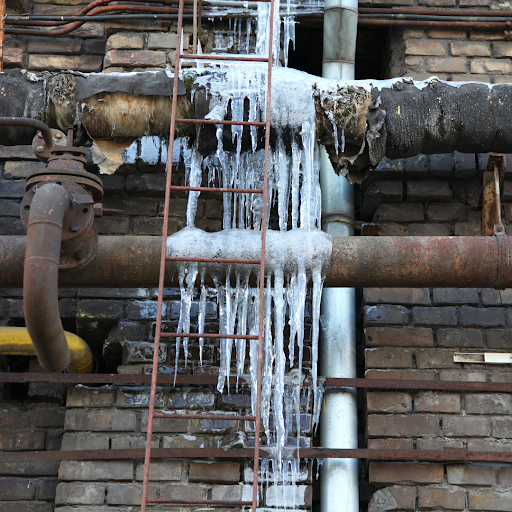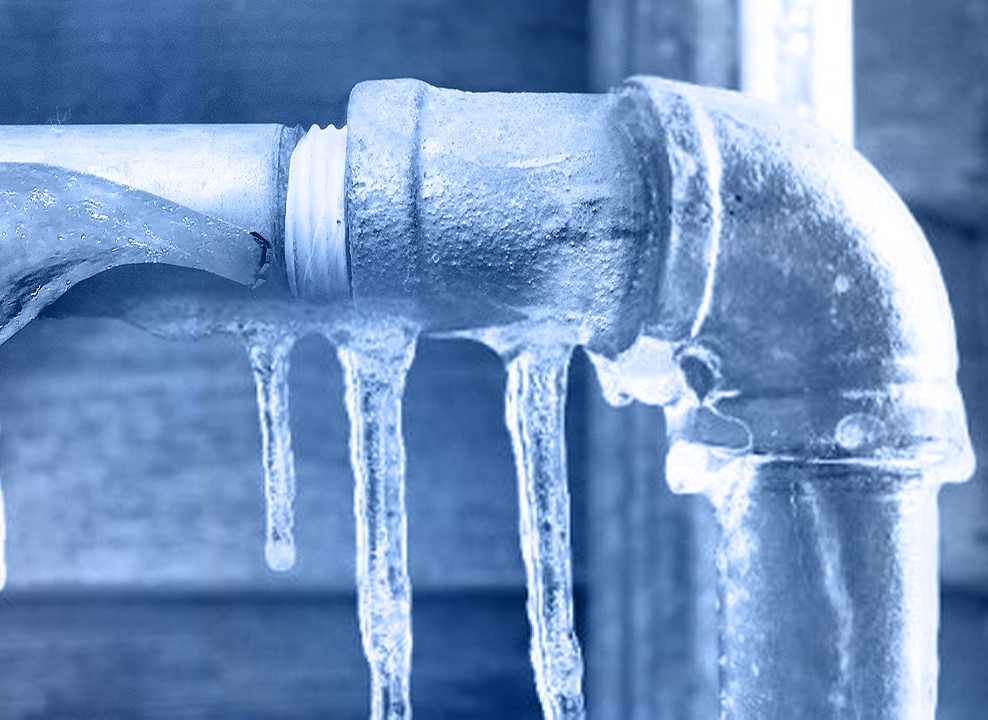Guidance for Preventing Frozen Pipes in Cold Weather: Expert Insights
Guidance for Preventing Frozen Pipes in Cold Weather: Expert Insights
Blog Article
Everyone may have their private thinking on the subject of Preventing and dealing with frozen pipes.

Winter can damage your pipes, particularly by freezing pipes. Below's how to prevent it from occurring and what to do if it does.
Intro
As temperature levels decline, the threat of icy pipelines rises, possibly resulting in expensive fixings and water damages. Recognizing exactly how to avoid frozen pipes is essential for property owners in cold environments.
Avoidance Tips
Protecting susceptible pipes
Cover pipes in insulation sleeves or use warmth tape to secure them from freezing temperatures. Concentrate on pipelines in unheated or exterior locations of the home.
Heating techniques
Maintain interior areas adequately heated up, particularly locations with plumbing. Open cabinet doors to permit cozy air to distribute around pipes under sinks.
How to identify icy pipelines
Search for decreased water circulation from taps, unusual smells or sounds from pipes, and noticeable frost on revealed pipes.
Long-Term Solutions
Structural changes
Think about rerouting pipelines far from exterior wall surfaces or unheated areas. Include extra insulation to attic rooms, basements, and crawl spaces.
Updating insulation
Invest in high-quality insulation for pipes, attic rooms, and walls. Correct insulation helps keep consistent temperature levels and lowers the danger of icy pipelines.
Protecting Outside Pipes
Garden hose pipes and exterior taps
Disconnect and drain yard tubes before wintertime. Mount frost-proof faucets or cover outside faucets with insulated caps.
Recognizing Frozen Pipelines
What creates pipes to ice up?
Pipelines ice up when subjected to temperatures below 32 ° F (0 ° C) for prolonged durations. As water inside the pipes freezes, it increases, taxing the pipe walls and possibly causing them to rupture.
Threats and damages
Icy pipelines can result in water supply interruptions, residential or commercial property damages, and pricey repairs. Burst pipes can flooding homes and trigger considerable architectural damages.
Signs of Frozen Pipeline
Determining frozen pipes early can prevent them from rupturing.
What to Do If Your Pipes Freeze
Immediate actions to take
If you suspect frozen pipelines, maintain faucets open up to alleviate stress as the ice melts. Make use of a hairdryer or towels soaked in warm water to thaw pipelines slowly.
Verdict
Avoiding icy pipelines calls for proactive procedures and fast reactions. By recognizing the reasons, signs, and preventive measures, home owners can protect their plumbing throughout winter.
Helpful Tips to Prevent Frozen Pipes this Winter
UNDERSTANDING THE BASICS: WHY PIPES FREEZE AND WHY IT’S A PROBLEM
Water freezing inside pipes is common during the winter months, but understanding why pipes freeze, and the potential problems it can cause is crucial in preventing such incidents. This section will delve into the basics of why pipes freeze and the associated problems that may arise.
THE SCIENCE BEHIND FROZEN PIPES
When water reaches freezing temperatures, it undergoes a physical transformation and solidifies into ice. This expansion of water as it freezes is the primary reason pipes can burst. As the water inside the pipe freezes, it expands, creating immense pressure on the walls. If the pressure becomes too great, the pipe can crack or rupture, leading to leaks and water damage.
FACTORS THAT CONTRIBUTE TO PIPE FREEZING
Low Temperatures: Extremely cold weather, especially below freezing, increases the risk of pipes freezing. Uninsulated or Poorly Insulated Pipes: Pipes located in unheated areas, such as basements, crawl spaces, or attics, are more prone to freezing. Insufficient insulation or lack of insulation altogether exacerbates the problem. Exterior Wall Exposure: Pipes running along exterior walls are susceptible to freezing as they encounter colder temperatures outside. Lack of Heating or Temperature Regulation: Inadequate heating or inconsistent temperature control in your home can contribute to frozen pipes. PROBLEMS CAUSED BY FROZEN PIPES
- Pipe Bursting: As mentioned earlier, the expansion of water as it freezes can cause pipes to burst, resulting in significant water damage.
- Water Damage: When pipes burst, it can lead to flooding and water damage to your property, including walls, ceilings, flooring, and personal belongings.
- Structural Damage: Prolonged exposure to water from burst pipes can compromise the structural integrity of your home, leading to costly repairs.
- Mold and Mildew Growth: Excess moisture from water damage can create a favorable environment for mold and mildew growth, posing health risks to occupants.
- Disrupted Water Supply: Frozen pipes can also result in a complete or partial loss of water supply until the issue is resolved.
WHY CERTAIN PIPES ARE MORE PRONE TO FREEZING
- Location: Pipes located in unheated or poorly insulated areas, such as basements, crawl spaces, attics, or exterior walls, are at higher risk of freezing.
- Exterior Pipes: Outdoor pipes, such as those used for irrigation or exposed plumbing, are particularly vulnerable to freezing as they are directly exposed to the elements.
- Supply Lines: Pipes that carry water from the main water supply into your home, including the main water line, are critical to protect as freezing in these lines can affect your entire plumbing system.
- Underground Pipes: Pipes buried underground, such as those connected to sprinkler systems or outdoor faucets, can be susceptible to freezing if not properly insulated.
https://busybusy.com/blog/helpful-tips-to-prevent-frozen-pipes-this-winter/

Do you really like more info about Preventing and dealing with frozen pipes? Leave a review down the page. We'd be pleased to hear your feelings about this article. Hoping to see you back again soon. You should take the opportunity to distribute this content if you enjoyed it. We recognize the value of your readership.
Book Your Appointment Report this page